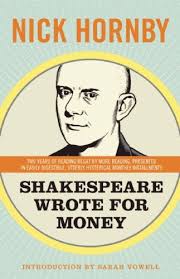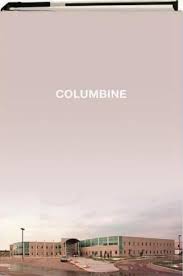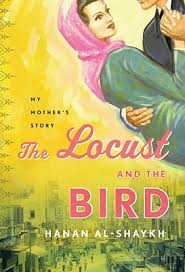Synopsis

| Clurman Theatre 410 W. 42nd Street New York, NY 10036 Currently running! Closes on November 14, 2009 Opened on October 6, 2009 Running Time: 1 hr. 30 min. Ticket Price: $51.25 Tickets by Phone: 212-279-4200 |

| Clurman Theatre 410 W. 42nd Street New York, NY 10036 Currently running! Closes on November 14, 2009 Opened on October 6, 2009 Running Time: 1 hr. 30 min. Ticket Price: $51.25 Tickets by Phone: 212-279-4200 |
4.
Something feeds me zeros until

"One day people are going to realize that Kristen Kosmas is the Chekhov of our time."
—Laylage Courie
"The play opens quietly, more or less, on the Eastern Seaboard and then closes, more or less miraculously, somewhere else altogether, achieving on its happy and troublous way all the things a reader or audience member could hope for—distance, speed, heart, submersion, emergence, truth, mystery, and more. By the end, in a plain and simple and fairly sad way, everything stands for everything else, nothing is not filled with mystery, and to be a living human being is seen to be—despite the drawbacks—the most enviable thing of all."
—Will Eno
"You can hate if you want but you're wrong."
—Andy Horwitz

2009 NATIONAL BOOK AWARD FINALISTS
Fiction
Bonnie Jo Campbell, American Salvage (Wayne State University Press)
Colum McCann, Let the Great World Spin (Random House)
Daniyal Mueenuddin, In Other Rooms, Other Wonders (W. W. Norton & Co.)
Jayne Anne Phillips, Lark and Termite (Alfred A. Knopf)
Marcel Theroux, Far North (Farrar Straus and Giroux)





“5 Under 35 is a celebration of emerging talent and the perfect way to kick off National Book Awards Week,” says Augenbraum.

Ceridwen Dovey, Blood Kin (Viking, 2008)
Selected by Rachel Kushner, 2008 Fiction Finalist for Telex from Cuba
C. E. Morgan, All the Living (Farrar, Straus & Giroux, 2009)
Selected by Christine Schutt, 2004 Fiction Finalist for Florida
Lydia Peelle, Reasons for and Advantages of Breathing
(HarperCollins, 2009)
Selected by Salvatore Scibona, 2008 Fiction Finalist for The End
Karen Russell, St. Lucy's Home for Girls Raised by Wolves
(Vintage, 2006)
Selected by Dan Chaon, 2001 Fiction Finalist for Among the Missing
Josh Weil, The New Valley (Grove Press, 2009)
Selected by Lily Tuck, 2004 Fiction Winner for The News from Paraguay



April 20, 1999, two boys left an indelible stamp on the American psyche. Their goal was simple: to blow up their school, Oklahoma City-style, and to leave "a lasting impression on the world." Their bombs failed, but the ensuing shooting defined a new era of school violence-irrevocably branding every subsequent shooting "another Columbine."
When we think of Columbine, we think of the Trench Coat Mafia; we think of Cassie Bernall, the girl we thought professed her faith before she was shot; and we think of the boy pulling himself out of a school window-the whole world was watching him. Now, in a riveting piece of journalism nearly ten years in the making, comes the story none of us knew. In this revelatory book, Dave Cullen has delivered a profile of teenage killers that goes to the heart of psychopathology. He lays bare the callous brutality of mastermind Eric Harris and the quavering, suicidal Dylan Klebold, who went to the prom three days earlier and obsessed about love in his journal.
The result is an astonishing account of two good students with lots of friends, who were secretly stockpiling a basement cache of weapons, recording their raging hatred, and manipulating every adult who got in their way. They left signs everywhere, described by Cullen with a keen investigative eye and psychological acumen. Drawing on hundreds of interviews, thousands of pages of police files, FBI psychologists, and the boys' tapes and diaries, he gives the first complete account of the Columbine tragedy.
In the tradition of Helter Skelter and In Cold Blood, Columbine is destined to be a classic. A close-up portrait of violence, a community rendered helpless, and police blunders and cover-ups, it is a compelling and utterly human portrait of two killers-an unforgettable cautionary tale for our time.

Excerpted from the novel HOMER & LANGLEY,
that just came out from Random House
this September 1, 2009 by E. L. Doctorow.

The cop didn't seem to hear. I leave the accounting to you in good faith, Mr. Coller, and I will come by of a Wednesday morning for the remittance and no questions asked, but with a floor of ten dollars.
Langley said: What do you mean "a floor"?
The cop: Well, sir, it would not be worth my time for anything less.
Langley: I understand that criminal matters in this city do press upon your time, Officer. But you see we don't charge much for our tea dances, they are offered more in the nature of a public service. If we have forty couples of an afternoon it's a lot. Add to that our overhead—refreshments, labor costs—and well, we might think about supporting your Police Beneficiaries League with a bribe or, as you call it, a floor of maybe five dollars a week. And for that we would of course expect you to stand out front every Tuesday and touch your cap.
Well now, Mr. Coller, if it was up to me, I would say to you "done and done." But I have my overhead as well.
And that is … ?
My sergeant over to the precinct.
Ah yes, Langley said to me, now we're getting to it.

Chase Insteadman, a handsome, inoffensive fixture on Manhattan's social
scene, lives off residuals earned as a child star on a beloved sitcom called
Martyr & Pesty. Chase owes his current social cachet to an ongoing tragedy
much covered in the tabloids: His teenage sweetheart and fiancée, Janice
Trumbull, is trapped by a layer of low-orbit mines on the International Space
Station, from which she sends him rapturous and heartbreaking love letters.
Like Janice, Chase is adrift, she in Earth's stratosphere, he in a vague
routine punctuated by Upper East Side dinner parties.